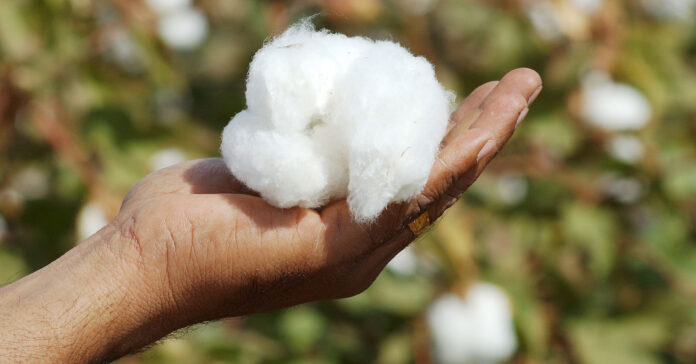ISLAMABAD: The Caretaker Federal Minister for Commerce, Industries and Production Dr. Gohar Ejaz and Chairman of the Federal Board of Revenue (FBR) Malik Amjed Zubair Tiwana on Thursday agreed to introduce Track & Trace System for transparent cotton trade.
According to details, The caretaker Federal Commerce and Industries minister and chairman FBR in a meeting decided that the tax department, in collaboration with federal ministries and provincial departments, will introduce a Track and Trace System at ginning factories in Pakistan to promote transparent cotton trade.
The track-and-trace system
Manufacturers often under-report their production numbers precisely to evade tax. This is where the problem starts. Say, for example, that you are a fertiliser manufacturer and produce 500 bags of Urea. The demand for fertiliser from your plant is 400 bags. Now, if there are 500 bags being produced that would mean the supply is increasing beyond demand which results in the price falling. The problem for the manufacturer is that the government will tax every single bag of Urea that is purchased. So instead of reporting these extra 100 bags, the producer will show that they are making an even 400 bags and sell the remaining 100 at a lower price free of tax.
{Editor’s note: Urea has just been used as an example here and the production numbers are also simply hypothetical and meant to help the reader understand better.}
This then creates an artificial shortage. In most industries under reporting is much more blatant than in our example. Urea, cigarettes, cement, and sugar are susceptible to artificial shortages and are also part of smuggling rackets. Just last month the FBR’s customs department (yes the FBR has one of those precisely for this reason) seized urea fertiliser and sugar worth Rs 392 million from Balochistan’s Khuzdar during three raids as part of a major anti-smuggling operation. Customs Intelligence seized 41,883 bags of urea having a market value of Rs 167.53 million, and 44,957 bags of sugar having a market value of Rs 224.79 million.
It’s a pretty simple system. Manufacturers underreport their production numbers. They then sell the unreported surplus production outside of the tax net at cheaper rates and the black market grows. This has resulted in startling estimates of just how big the shadow economy is in Pakistan with academics and researchers estimating the size of this undocumented economy anywhere between 40-80% of the country’s GDP.
So what can be done about this?
The T&T system proposes that tax collection be done directly at the source. That means the government monitors production and catalogue how much a company’s output is and then tax them directly on those numbers. So if we go back to our fertiliser example, when the government first brought in a T&T system it asked the fertiliser industry to invest heavily in a mechanism that would have a stamp placed on each and every bag of fertiliser produced which could then be scanned before it was sold. The data from this scanning would go directly to the FBR which would then record the total number of bags produced and tax them accordingly.
T&T solutions are used across the globe to assist in the process of tax collection. But how have these four industries in particular reacted to the attempts, and has the track and trace system had any results that speak to its efficacy?
What’s the deal with cotton?
This initiative aims to assist the textiles and apparel industry in meeting the traceability standards set by various trading blocs, nations, brands, and retailers.
Currently, FBR with assistance from its Licensee Authentix Inc., US, and consortium partners AJCL Private Limited and MITAS Corporation of South Africa has implemented T&T solution on major Tobacco companies as well as Sugar factories besides, the department is struggling hard to fully implement T&T on Fertilizer and Cement units.
Recently, FBR has also started work to introduce T&T in the beverages sector.
The T&T System’s capability for real-time production monitoring offers a transformative shift from conventional retrospective auditing approaches.
The real-time production monitoring will enable the Tax Authorities to have access to current and comprehensive data which will facilitate proactive decision-making and ensure more accurate tax assessments.
This centralized repository will provide Tax Authorities with unprecedented visibility into the sector’s production landscape.
The implementation of the Track and Trace System will not only encompass the Sector within the Track and Trace network but will also amplify revenue collection, thereby contributing to the national exchequer.

























I have been reading this article for a long time and loved every bit of it. The writing is amazing. Looking forward to reading it more.
Sir please share me latest News about bisp and ehsaas program
I am hoping the same best effort from you in the future as well. In fact your creative writing skills has inspired me.
Great sir
Thanks for support of Track and trace of cotton. Helps alot